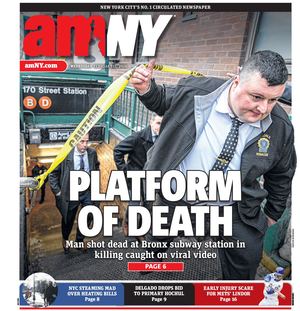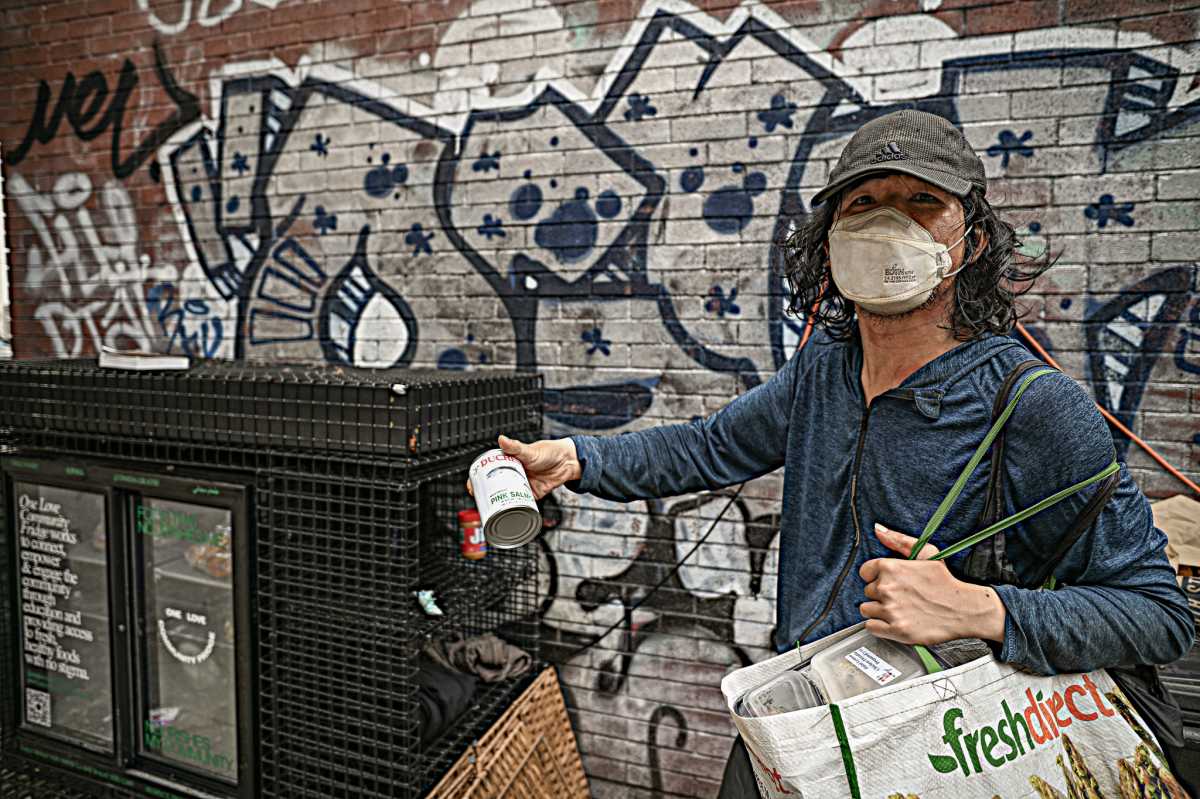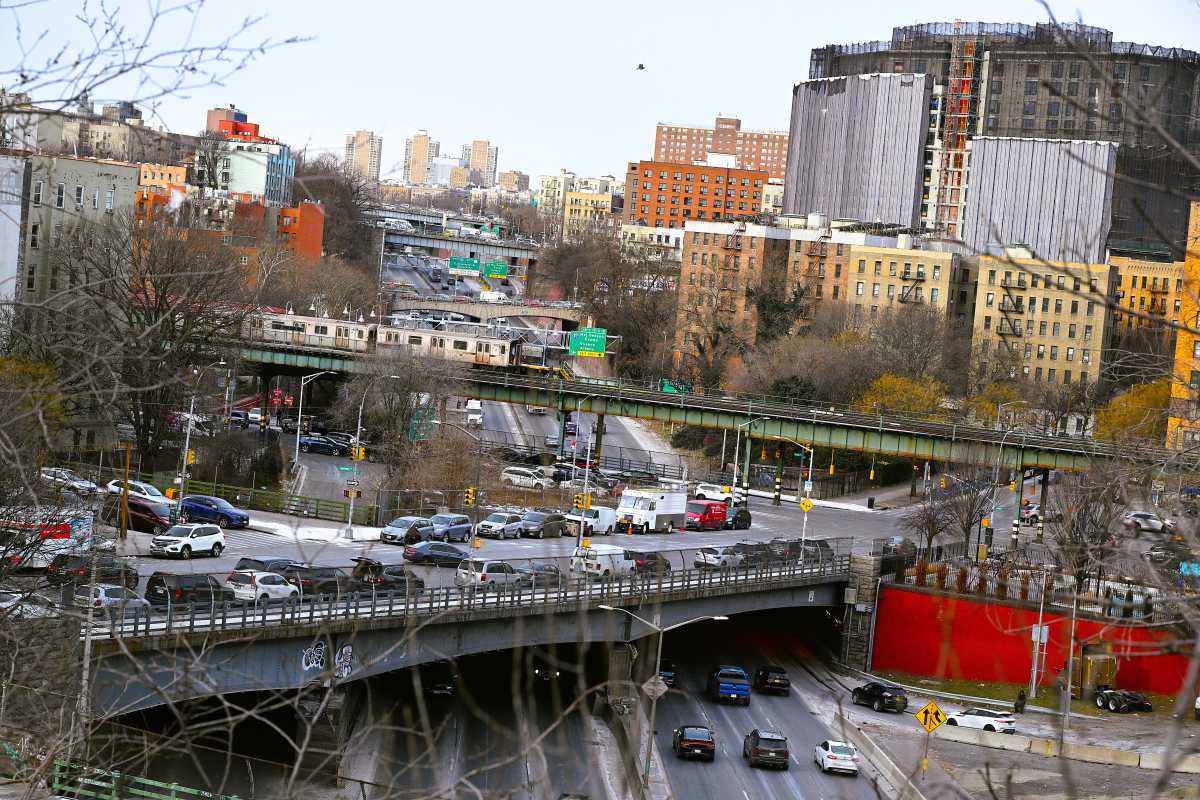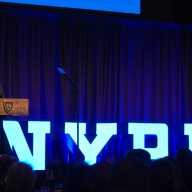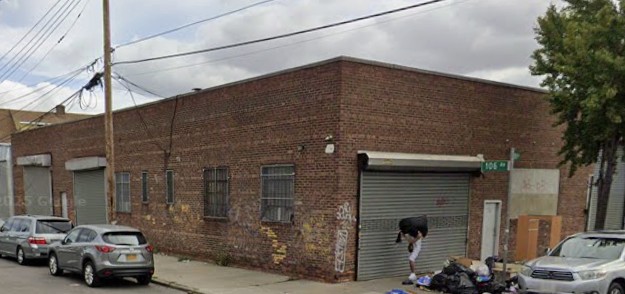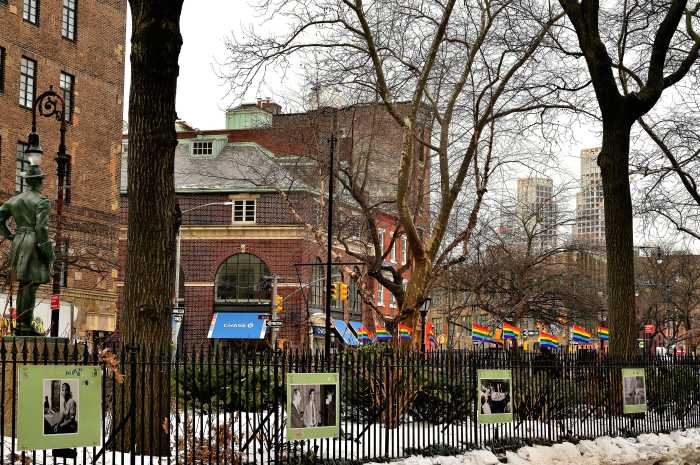Community fridges first popped up in the East Village and other New York neighborhoods just as the COVID-19 pandemic began to ravage the Big Apple in 2020, and quickly became a lifeline for those in need. Five years later, most of the refrigerators are gone.
Amid the deadly pandemic that struck five years ago, New Yorkers banded together to create outside refrigerators and pantries stocked with food and even clothing for the homeless. Fast forward to 2025, and nearly all of these Lower Manhattan mutual aid experiments have vanished, almost as if they were never there at all. But the local memory does not fade so easily.
According to Ramiro Maca, a cashier at S’MAC on 197 1st Ave., people still stop by the restaurant with bags of food to donate to the now-missing 1st Avenue fridge even though it has been gone for over a year due to mounting complaints.
S’MAC once powered a fridge that endured blistering heat, torrential rainfall, and even snowstorms. But the little nook where it once provided a beacon of hope to the community now remains empty.
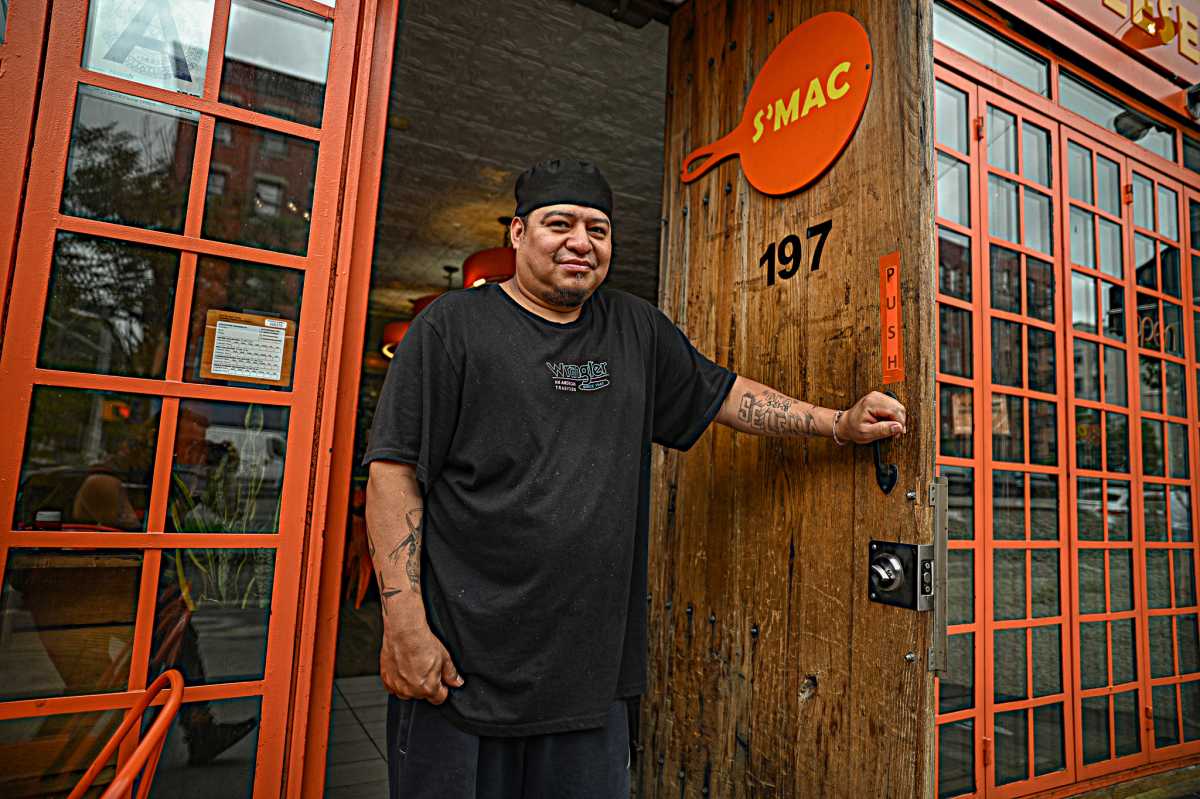
“A lot of people complained and there were a lot of fights over the food,” Maca recalled, adding that he believed some individuals would steal the food to sell on the troubled 14th Street and 1st Avenue flea market.
Despite witnessing violent altercations firsthand, Maca affirmed that he believed the fridge was a good gesture and worked well in theory. S’MAC even provided food themselves when a mistaken order was placed.
“It was good because there are mistakes here sometimes, and we would put food in it,” Maca said.
Complaints doomed many community fridges
According to Maca, the S’MAC fridge ultimately became a casualty of neighborhood complaints and unruly behavior that forced its removal, but it was not the only one.
Another long-standing refrigerator sat outside of Trinity Lower East Side Lutheran Church at 602 East 9th St., and served the homeless community of Tompkins Square Park.
The house of worship has an extensive history of serving those in need. According to Pastor William Kroeze, Trinity has helped feed those in need since the 1960s and currently feeds hundreds of people every day, no matter their background or immigration status. Like its S’MAC counterpart, the church recognized a great need during the pandemic and agreed to host a fridge of its own.
“We were approached by members of the community who wanted to do the same, but in this part of the neighborhood, and they identified our corner as being an ideal spot for it, being right on the park,” Pastor Kroeze recounted. “For us, it just was like a natural extension of the work that we’ve been doing for decades.”
For years, the fridge was a staple of the area and supplemented the daily soup kitchen, but as time wore on, things deteriorated. The fridge was vandalized several times, and those using it began to toss leftovers into the church grounds, jeopardizing the much larger daily food giveaway.
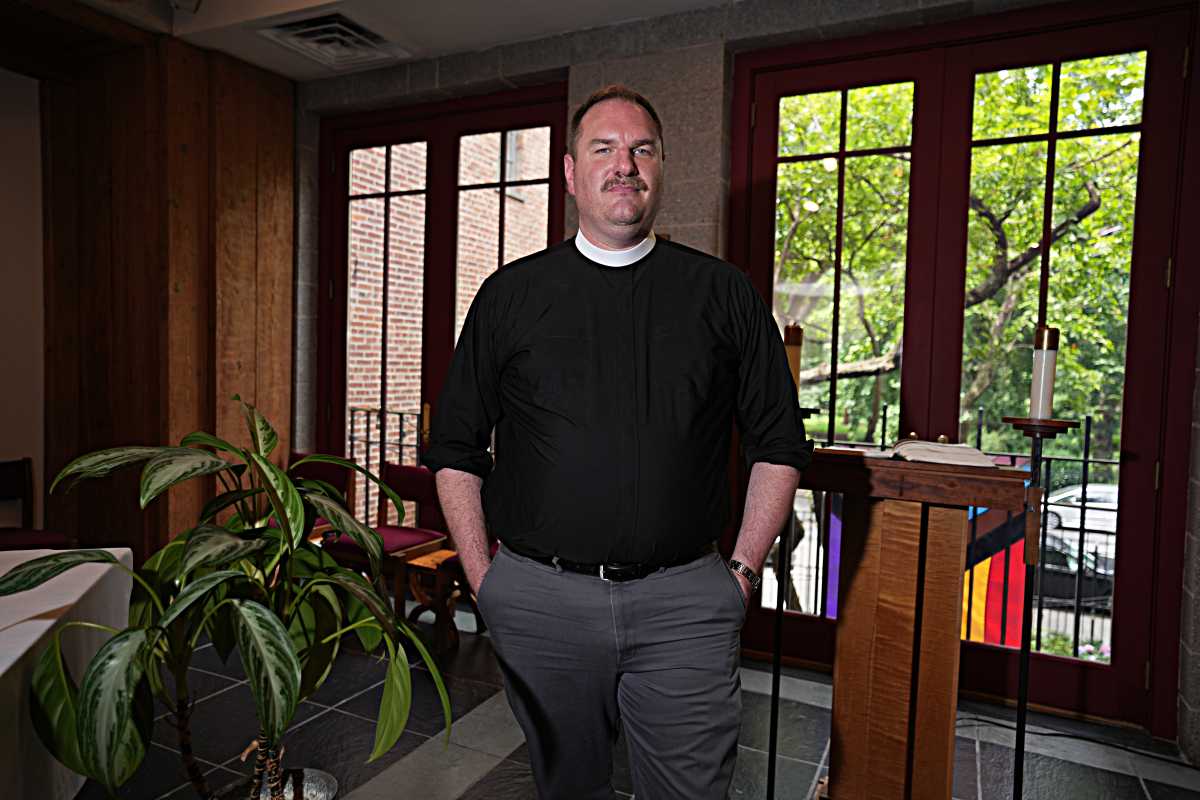
“The biggest complaints that we ever received were from food that would be sort of strewn around the fridge, and sort of enticing rats,” Pastor Kroeze said. “Some people had thrown food into our garden, so there was sort of a constant source of food for rats, and that really is the thing that led to us saying that we felt that we had hosted it for three and a half years, and that it was time to move someplace else, because we began to get health code violations from the City for excessive rats in the garden. We kind of got to the point where we had to prioritize our primary mission, which is our soup kitchen and food pantry.”
Pastor Kroeze still spends much of his time aiding those in need through daily food distributions and described the community fridge as a model he was proud of. However, due to the difficulties of hosting it, he also feels as though the time of the community fridge has come to an end.
“Mutual aid is the most effective way, I think, to serve communities in partnership with established organizations like ours, but I think that it [the fridge] was something whose time maybe has come and gone, but we were so proud of it, and I’m sad to see that there are not more fridges around, and I would be very happy for it to be a permanent fixture of our neighborhoods,” Pastor Kroeze said.
The last fridge standing
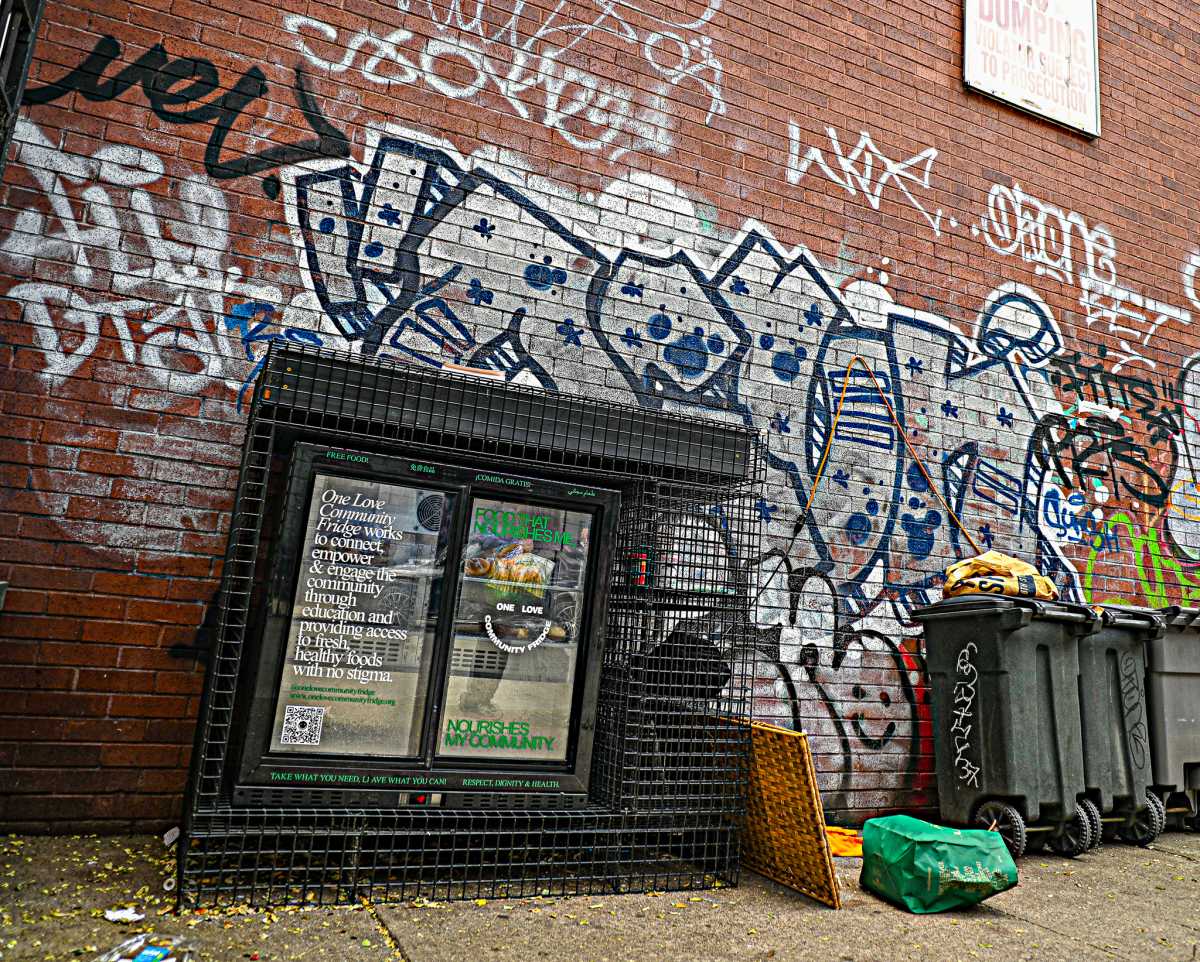
The fridge was relocated to 6th Street and Avenue C, and it now serves as the last fridge standing in the area. Vastly smaller than its counterparts and tucked beside a graffiti-scrawled brick wall, on July 13, it was found to contain a bag of bread, a can of tuna, a jar of peanut butter, and some clothing.
Two unhoused individuals stood a few feet from the fridge, casually chatting. The men told amNewYork that the missing fridges have not left them any worse for wear since they get the majority of their necessities from soup kitchens like Kroeze’s.
In a candid interview, one of the men said that the downfall of the fridges rested on the shoulders of a selfish few.
“Whenever it comes to freebies, people get really aggressive, and then it becomes dangerous. People would just stand around waiting for food distribution to come and then everyone would start mobbing it — a very dangerous situation,” said the man, who identified himself as Sam.
Sam went to say this aspect saddened him as he pointed to the clothing lifted a can of tuna, believing that at one time these fridges helped a lot of people.
“There’s a lot of pros and cons, but I think it serves more of a pro than a con, because it helps people and the environment. It does not go to the trash or a landfill, it’s not wasted,” Sam said.
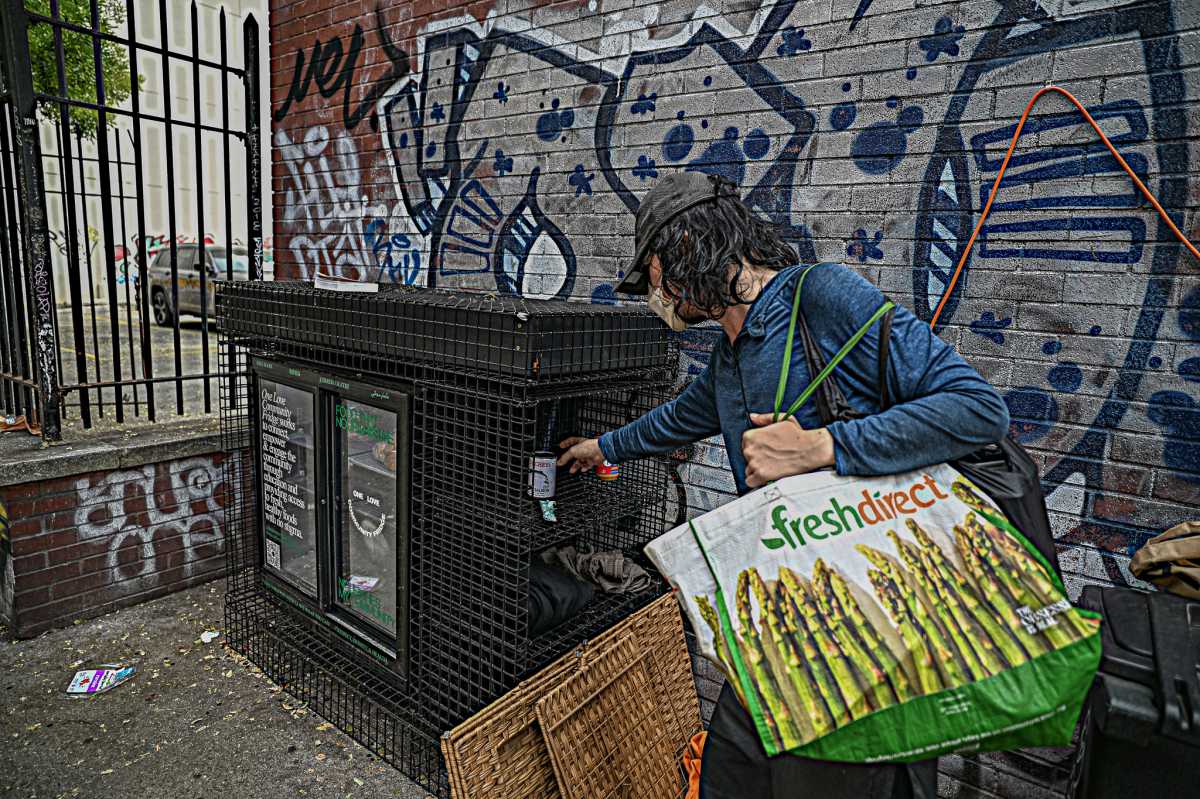
Also Read : https://www.amny.com/sports/trump-attends-club-world-cup-final-7-13-25/
